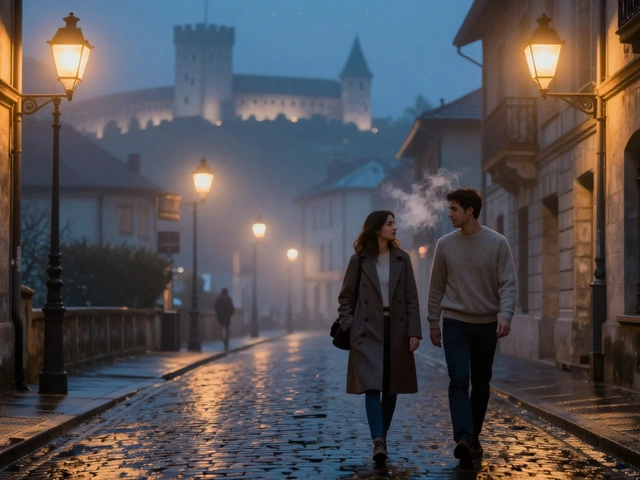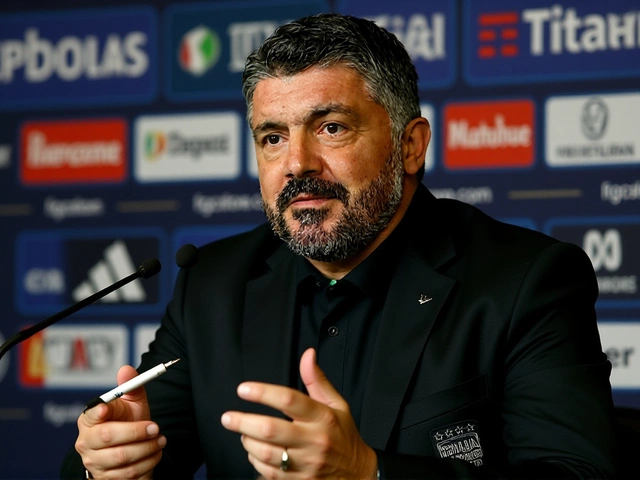A return to Colchester after six years
One of Britain’s most durable live performers, Tom Jones brought his touring machine back to Colchester Castle Park on August 18, 2025, for an outdoor Summer Series date that ran from late afternoon into the evening. The appearance marked his first Castle Park show in six years, turning the historic grounds into a pop-soul stage for a multi-generational crowd.
Promoted as part of the Castle Summer Series, the event was set up as a standing concert with gates open for a 16:00–22:30 run time. The venue billed it as suitable for ages 6 and over, with adult supervision required for younger attendees, signaling a family-friendly setup but one geared toward a classic festival-style experience: on-your-feet, open-air, and tightly scheduled around a local curfew.
Craig Charles was listed as the support, a familiar name to fans of British TV and radio. Known for Red Dwarf and his long-running funk-and-soul radio credentials, he typically brings a DJ set steeped in groove—an energetic warm-up that fits squarely with the feel-good soul canon Jones helped popularize. On paper, the pairing made sense: a crate-digger’s selections before a singer whose catalog stretches from 1960s hits to modern collaborations.
The six-year gap since Jones last stood on the Castle Park stage gave this date a reunion feel. Colchester Castle, a Norman keep built on Roman foundations, has become a striking backdrop for summer concerts in Essex—heritage brickwork, open lawns, and a natural amphitheater vibe that artists increasingly seek out for UK outdoor seasons. For legacy acts, these sites do double duty: they sell nostalgia while placing the music in a setting that feels unmistakably British.
Jones’s career doesn’t need much introduction. His songbook—It’s Not Unusual, Delilah, What’s New Pussycat?, She’s a Lady, Kiss, and the late-career staple Sex Bomb—has been repackaged across decades of touring and TV appearances, with newer albums and collaborations bringing fresh arrangements to familiar material. The Castle Park stop slotted into that long arc, promising a set built on voice and presence, not elaborate staging.
The format was straightforward: outdoor stage, general admission standing, early start to allow time for support and a full headline slot before the 22:30 cutoff. These framework details matter for a park venue. Sound checks and stage builds have to thread a needle—loud enough to energize, controlled enough to respect neighborhood limits—while crowd management in a historic park asks for clear entry points, quick bag checks, and visible stewards. For families and casual attendees, those signposts are the difference between a pleasant evening and a long queue.
With ages 6+ on the ticket, the promoter leaned into the multi-generational appeal that keeps Jones on festival bills from May to September. Parents who grew up with his TV specials bring kids who know him from talent-show cameos and streaming-era playlists. That cross-generational pull is why artists like Jones still anchor British summer series in towns beyond the big-city circuits. The formula is simple: familiar voice, broad catalog, early finish, and a setting where the view is part of the ticket.
The Castle Summer Series has emerged as one of those regional staples—less about experimental lineups and more about reliable, high-demand names that fill a park on a warm night. Local businesses typically plan for spikes in pre- and post-show trade, from pubs in the city center to late-evening transport. While exact audience numbers for this date weren’t disclosed, the event’s long window and family policy suggest the organiser expected steady footfall across the day rather than a single, late crush.
There was one unresolved detail floating around fan chatter ahead of the show: mentions of Lianne Kaye. The listings that confirmed Craig Charles as support did not verify Kaye on the bill, and there was no official schedule publicly available that named her slot. Likewise, there wasn’t immediate, consolidated reporting on audience reception beyond basic event information—no comprehensive setlist notes or on-the-ground reviews surfaced in the usual public channels at the time of writing.
Even without that granular post-show detail, the contours of the night were clear. This was a heritage-venue booking designed for broad appeal, leaning on a headliner whose voice remains a selling point and a support act with an easy-to-like, dance-floor-friendly brief. The resting heart rate of the production is comfort: sightlines over seating, brisk changeovers, and a curfew that sends people home before the city winds down completely.
For Colchester, the booking doubles as soft power. Castle Park concerts keep the city on touring maps and frame the historic core as a cultural space rather than a preserved relic. That matters for places balancing conservation with live events—especially when the artist can bridge generations and pull in locals who might skip the long train into London for a midweek gig.
Jones’s late-career mode has been to blend the evergreen and the contemporary—reworking classics with a tighter, more rhythmic backing and mixing in later-era recordings for texture. Fans who show up for Delilah stay for the gravelly ballads and blues detours that have defined his 21st-century records. It’s the same touring logic that keeps him relevant on festival main stages: craft over spectacle, catalog over novelty.
As the Castle Summer Series continues to match heritage backdrops with familiar headliners, this date checks the boxes that keep the format popular: a clear schedule, a family-open door policy, and a marquee name with enough history to fill an evening without gimmicks. By closing at 22:30, the show fit neatly into the neighborhood, a reminder that outdoor seasons in historic parks work best when the music takes center stage and the timetable respects the city around it.





